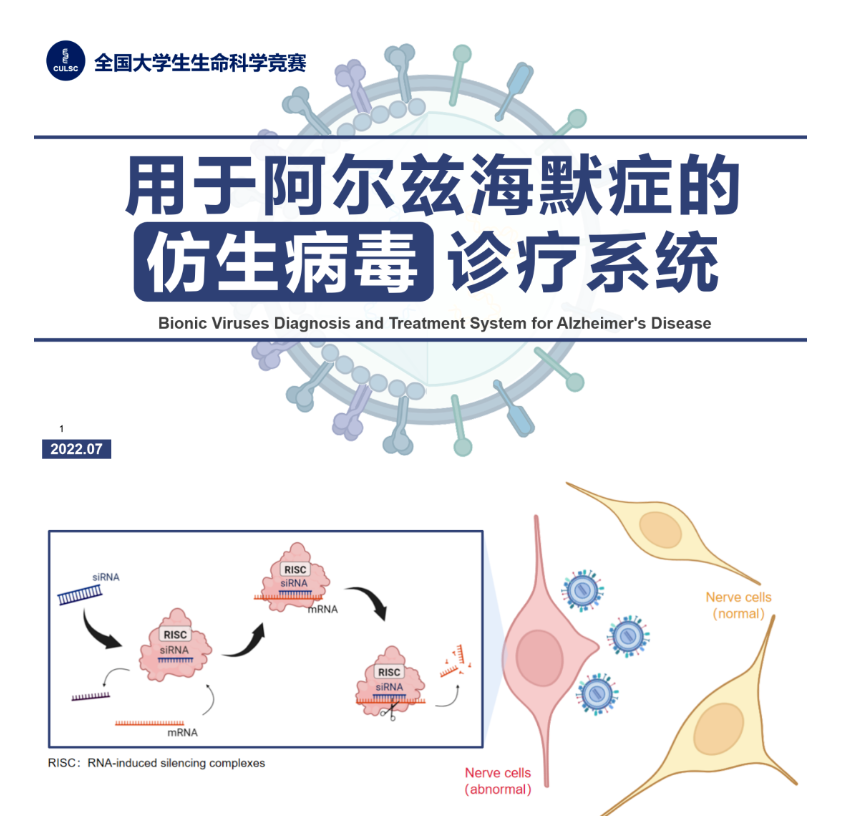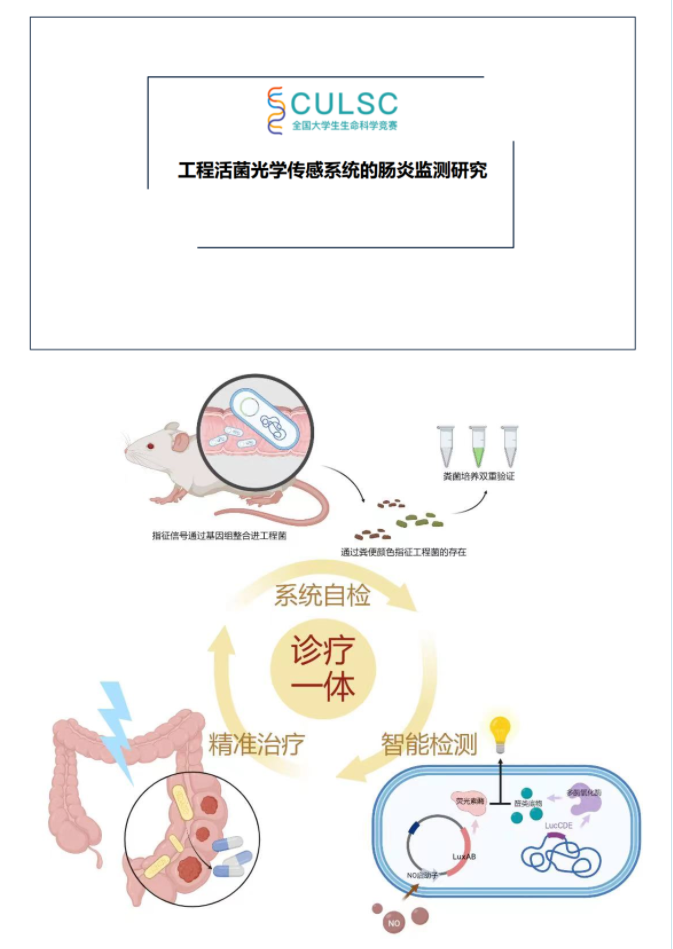Tianjin University teams from the School of Life Sciences won three prizes in the China Undergraduate Life Sciences Contest (CULSC) from Aug 22 to Aug 24, 2022, including two second prizes and one third prize.
The project Bionic Viruses Diagnosis and Treatment System for Alzheimer’s Disease won second prize. Alzheimer's disease is a neurodegenerative disease that occurs frequently in the elderly. The cost of caring for patients is high, which will bring a heavy burden to their families and even the whole society. According to statistics, one person is diagnosed with Alzheimer's disease in the world every three seconds. It is estimated that in 30 years, the number of patients with Alzheimer's disease will increase from the current 46 million to more than 100 million. Therefore, it’s necessary to develop relevant therapeutic drugs. In this project, team members targeted the BACE1 gene to design a bionic enveloped virus nanoparticle that could be used in the treatment of Alzheimer's disease. The bionic shell is wrapped with siRNA that can inhibit the expression of BACE1 gene. The bionic shell is wrapped with a bionic surrounding structure to improve its stability and half-life period in vivo. Finally, rabies virus peptide RVG29 is coupled on the particle surface to realize the crossing of blood-brain barrier and target the brain.

Another second-prize winner project is on engineered live bacteria based optical sensor system for monitoring enteritis.With Escherichia coli Nissle 1917 as the research object, the team used synthetic biology technology, constructed enteritis molecular marker sensing module and report signal imaging module, and successfully developed engineered bacteria in vivo monitoring intestinal disease system. They used gene expression regulation tools to optimize the system, finally achieved high precision and convenient visual detection of enteritis. The team has made a new attempt in the exploration of the construction of chronic disease diagnosis and treatment system.

The project on mRNA engineered live bacterial biotherapeutic for anti-tumor application won the third prize. Team members enhanced the expression of prokaryotic expressed RNA in eukaryotic cells by relevant modification and engineering transformation. At the same time, using the selectivity of MS2 capsid coated RNA, they designed a double plasmid system to express RNA therapeutic factors and capsid proteins respectively, and constructed a new type of engineered bacteria RNA drug carrier. It provides a new idea and method to achieve the production and delivery of mRNA vaccine in Escherichia coli and maintain the stability and persistence of mRNA.
China Undergraduate Life Sciences Contest is a top national competition covering the life science fields of biology, food, medicine, pharmacy, agriculture, environment and other disciplines of colleges and universities. The competition attracted 8,614 teams from 528 universities across the country.
By Zhang Yalin
Editor: Sun Xiaofang






